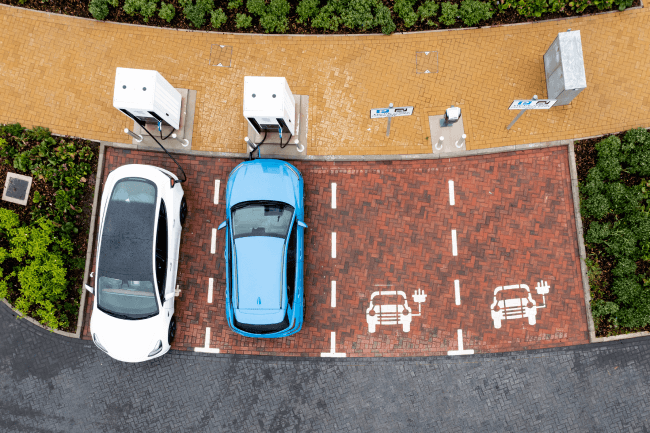UK Government Announces Major Push for Smart EV Charger Infrastructure
20-01-2023 | By Robin Mitchell
The UK government recently made a bold move to support the automotive and energy sectors by announcing plans to make smart EV chargers the new standard. The idea behind this is to help EV drivers reduce their energy bills while keeping the energy network stable. However, as with any major change, there are bound to be some challenges. What challenges does the energy grid currently face with energy storage, what plan does the UK government intend to push, and how will such plans encourage the move towards EVs?
What challenges does the energy grid currently face?
There is no doubt that the world is currently seeing multiple crises, including the COVID pandemic, semiconductor shortages, rising energy bills, and the war in Ukraine, but one crisis that is causing problems in particular for the energy market is climate change. As countries around the world start to recognise the dangers posed by climate change, increasing taxes and restrictions on fossil fuels while subsidies and incentives to bring in renewable energies are giving engineers responsible for maintaining energy networks nothing but grief.
One of the brilliant benefits of fossil fuels is that they come in a wide range of varieties, and the combination of them all allows network operators to adjust the amount of power being produced carefully. If energy production doesn’t meet energy demand, the resulting imbalance causes a change in line voltage and frequency, and this not only has the ability to damage consumer devices but even interfere with safety-critical applications.
But, the introduction of renewable energies has introduced major challenges in energy balancing as renewable energy is unreliable in the same way coal, oil, and gas are. These sources of energy cannot be turned off and on whenever extra energy is needed as the energy may not be available, and this means that network operators have to try and guess how much power these sources will generate, scale down energy sources from non-renewable sites, and then hope that renewable energies will fill the gap. Worse, times when renewable energy is unexpectedly generating massive amounts of power, will likely see this energy go to waste as it is not possible to rapidly shut down other power plants during these high times.
One solution to this challenge is energy storage, but so far, no commercial solutions exist that are economical, scalable, and practical for all locations. Large lithium-ion batteries present massive fire risks and are horrendously expensive, pumped hydro only works in areas where massive amounts of water can be stored (which introduces flooding risks), and gravity storage via block stacking has a low energy density meaning that a gravity storage site would be stupendously massive.
UK Government plan to make smart EV chargers the standard
Recently, the UK government announced a new plan that would see smart EV controllers become the standard, and initial plans expect that owners of smart EV chargers could see energy savings of up to £1,000 a year.
The idea behind a smart EV charger is that it not only charges EVs, but it can do so intelligently by only charging the vehicle during times of low energy demand where energy prices are discounted. At the same time, a smart EV charger can work in reverse and tap power out of the vehicle for either powering the home or pushing the stored power back into the grid to help stabilise it. Such a mechanism allows homeowners to avoid high energy rates by using stored power during high tariffs.
However, a smart EV charger could even push stored energy back to the grid when renewable energies are struggling to provide power. If enough users connect their EVs to smart chargers, the resulting storage capacity could realise a decentralised grid battery that not only helps to make better use of renewable energy but eliminate the fire risks associated with large-scale battery installations. At the same time, energy storage infrastructure costs are shifted away from grid operators, and EV owners can potentially make money from their energy storage contributions.
Not only does the new plan aim to make future EV chargers smart by default, but it also aims to utilise existing infrastructure to help EVs become more established. One such idea is to utilise lampposts as charging points with miniaturised charging stations. By making lampposts EV charging stations, vehicle owners have far more options for charging their vehicles, while network operators can focus on localised power storage and generation.

Will such plans encourage EVs?
While supercharging technologies enable EV drivers to charge their vehicles quickly, the lack of chargers makes their adoption difficult for many. On top of that, EV chargers are expensive to install and often require extensive electrical installations, and the high cost of EVs makes them only accessible to those with money. Even if EVs have lower operating costs, the low price of petrol vehicles compared to EVs means that the vast majority of people still choose combustion engines over EVs.
If the UK government can indeed bring its plan to fruition, then it is likely that more buyers will be persuaded to go electric, and increased sales of EVs should help to reduce the price of EVs. However, it is essential that the government not only introduces requirements for National Grid to introduce energy-saving systems via smart solutions but must also address EV charger access and the price of EVs.

